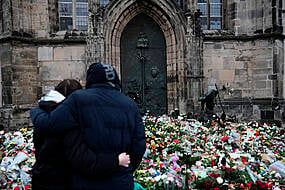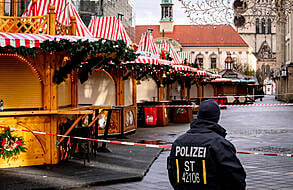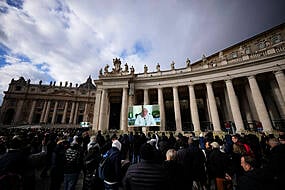A court in Moscow has ruled to restrict the activities of an organisation founded by imprisoned Russian opposition leader Alexei Navalny pending a decision on whether it should be outlawed as an extremist group.
The Moscow City Court ruling on Mr Navalny’s Foundation for Fighting Corruption came amid a sweeping crackdown on Russian President Vladimir Putin most prominent critic, his allies and his political infrastructure.
The Moscow prosecutor’s office petitioned the court this month to label the foundation and Mr Navalny’s network of regional offices as extremist groups and effectively outlaw their activities, exposing members and supporters to lengthy prison terms.
If the court grants the request, it would be a crippling blow to Mr Navalny’s beleaguered team. He has been in prison since January, and many of his aides and associates have been arrested or face criminal charges.

On Monday, the prosecutor’s office ordered Mr Navalny’s offices in dozens of Russian regions to suspend their activities, prompting them to effectively shut down. The Tuesday ruling on the foundation just barred it from performing certain activities.
Ivan Pavlov, a lawyer representing the foundation, said the organisation is no longer allowed to use the media or the internet to distribute content or to organise rallies and public events, take part in elections or use bank deposits.
Restrictions on the foundation will not disrupt its work, director Ivan Zhdanov said on social media, arguing that most of the restrictions do not apply to the anti-corruption organisation’s activities.
“Some nonsense,” Mr Zhdanov tweeted. “(These) aren’t going to influence our work in any way.”
The foundation opened 10 years ago and has targeted high-ranking Russian officials with exposes on corruption, many in the form of colourful and widely watched YouTube videos.
One of its latest posts, which has had 116 million views, alleges that a lavish palace on the Black Sea shore was built for Mr Putin through an elaborate corruption scheme. The Kremlin has denied there are any links to the president.

Mr Navalny set up a vast network of regional offices in dozens of Russian regions when he was campaigning to run against Mr Putin in the 2018 presidential election. He was eventually barred from running but kept the infrastructure in place.
The regional sites began their own investigations of corruption by local officials and recruited activists, some of whom later ran for public office. The locations were instrumental in organising nationwide rallies in support of Mr Navalny this year.
He was arrested in January on his return from Germany, where he spent five months recovering from a nerve agent poisoning that he blames on the Kremlin — accusations that Russian officials reject.
The arrest triggered protests across Russia that proved to be the biggest show of defiance in years. However, they did not stop authorities from putting Mr Navalny on trial for violating the terms of a suspended sentence while he was in Germany.
The sentence stemmed from a 2014 embezzlement conviction widely he has characterised as politically motivated. He was ordered to serve two and a half years in prison and was last month transferred to a penal colony notorious for its harsh conditions.
The foundation and the regional offices have been targeted regularly with raids, fines and detentions of activists before, but the extremism petition takes the pressure to a new level, Mr Navalny’s allies said.







